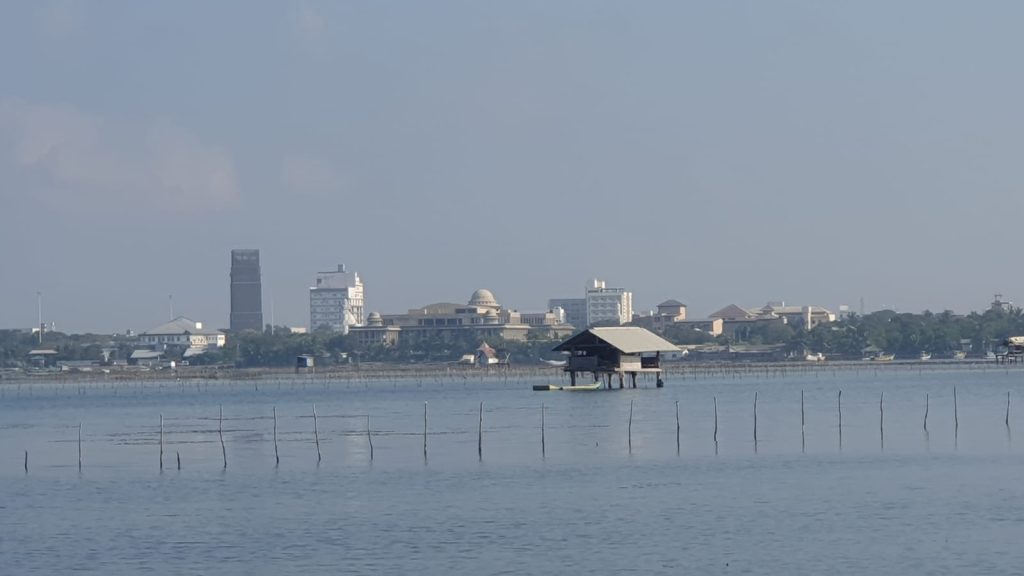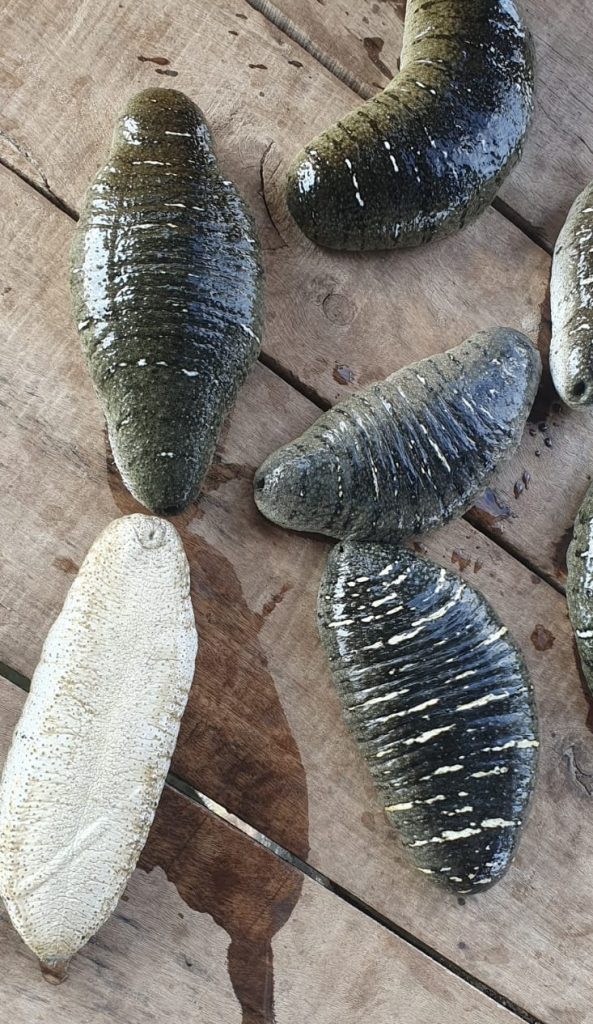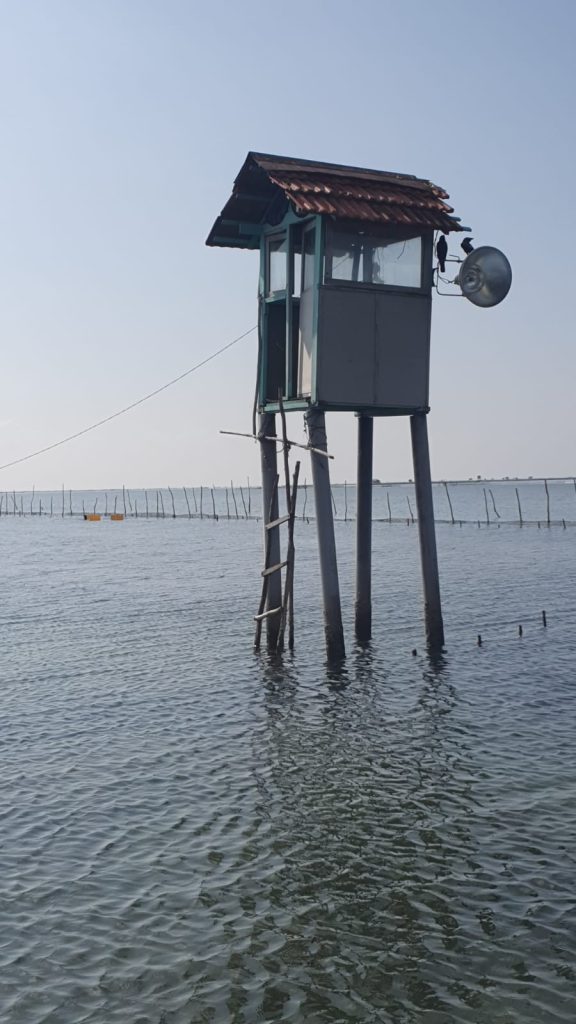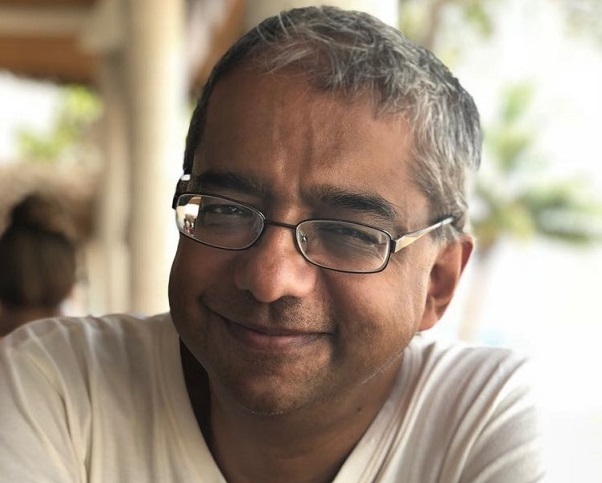By Jekhan Aruliah
Mr Ganendran is from Navaly, near Manipay Jaffna. Born in 1975 to a Christian Catholic family, Ganendran had his schooling from Grade 3 to A’Levels at St Patrick’s College. St Patrick’s is one of the leading Jaffna schools, not far from Jaffna Fort. In the midst of the Sri Lankan Civil War, Ganendran left for the Philippines to join his father’s brother. Here he took an IT degree, returning to Sri Lanka a few years later in 2002. Those days most young people wanted to get out of the country to escape the war and seek opportunity. Nowadays the war is over, but the young still seek to exit Sri Lanka imagining a better life in the deserts of the Middle East, the frosts of Toronto and the dubious air quality of London. Ganendran realised there are plenty of opportunities in Sri Lanka. He didn’t come from a business family, he didn’t have money to invest, so he joined companies as an employee. First Ceylon Business Appliances (CBA), then for three years working for a travel company.

Ganendran’s first foray into entrepreneurship was setting up his own travel company, Skyway International in Wattalla Colombo. Unfortunately for him this was a time when buying tickets directly on the internet was taking off. This new technology crumbled the business of many travel agents around the World who relied on ticket sales commissions. Ganendran decided to close his travel company. In 2014 he joined another of Sri Lanka’s leading construction companies. He was with the company for only a year as a sales executive, when another opportunity presented itself. An opportunity he seized.
One of Ganendran’s St Patrick’s College classmates had a successful Japanese restaurant in one of London’s most stylish locations, near St Paul’s Cathedral. St Paul’s is at the centre of London’s legal, financial, and tourism sectors. Many high spending people walk past. Seafood is key to Japanese cuisine. Ganendran and his friend formed a partnership to deliver Jaffna seafood to London’s elite diners.
So Ganendran had an export customer. The restaurant in London sat at the end of this seafood supply chain, with Ganendran at Jaffna’s Gurunagar fishing harbour at the start. But he didn’t have any money to invest. So he did what is common in the North, and Sri Lanka. He pawned his wife’s gold jewellery. In my years in Jaffna I have learned pawning is actually quite common, jewellery being a good inflation proof store of value. Pawning and redeeming jewellery is common practice for families to get over short term cashflow bumps: to pay for their rice and eggs, to repair broken rooftiles, and for investment purposes.
Having money wasn’t enough, Ganendran needed knowledge. Traders anywhere in the World are quick to spot a naïve customer. They see this ignorance as a perfectly legitimate money making opportunity. I have no doubt that I, unable to speak Tamil, am a classic target in Jaffna. Though having been here for 10 years the traders have come to know me and squeeze me more gently than they did when I first came 10 years ago. Ganendran spent 6 months sitting in the Gurunagar fishing harbour near Jaffna Fort from 5am to 9am just watching the boats come in and the market in operation, learning the business, getting to know the fishermen and traders. He learned how to tell between fresh fish, and the marine animals that had seen better days they wouldn’t be seeing again. How to look at the animal’s eyes, its colour, to squeeze its flesh. How to choose the best seafood for those plates and palates in up-market St Paul’s London.
Fresh fish must be airfreighted. Air freighting is only economic in units of at least 1 tonne said Ganendran, which is way too much for a single exclusive Japanese restaurant. So Ganendran was introduced to a UK based broker, a Sri Lankan living over there. The broker bought larger quantities wholesale, and sold to Sri Lankan shops in the UK. That business relationship turned sour and ended. But while doing this he met another customer, an Indian with 4 shops in the UK. This relationship has lasted profitably since 2017 and still continues now. Ganendran’s business continued to blossom to supply further export customers.
Cucumber to Cash

With the seafood business generating a healthy cashflow, Ganendran spotted the opportunity in farming seacucumber. This was not completely new to Ganendran. His grandfather, back in the 1970s, had a business buying seacucumber from local fishermen and divers, drying and exporting to Singapore. As a child Ganendran and his friends would play with the dried products, which made firm but harmless projectiles. This was not from seacucumber farms, but the wild seacucumber that are plentiful around the Jaffna Peninsula’s sheltered waters and lagoons.
There was an existing seacucumber farm in Allaipiddy, a coastal region on one of Jaffna’s main islands. Ganendran, to try the business out, took over this farm. For 2 years he ran this farm, with some success making decent money. He learned the business, and then decided to build a totally new farm. Searching the Jaffna coast, he found the perfect spot on Siritivu island lying offshore between Jaffna Town and Mandaitivu.
It took two years, starting in 2019, to get the licence. Objections were raised about the ecological impact. The reality is any farm, onshore or offshore, or indeed any industry or even domestic housing has ecological impact. The question is whether the ecological impact overrides the economic and other benefits. Considerations include do the locations being taken have a uniquely harmful impact, or whether other areas are there to maintain the ecology. The nets don’t have to be at sea level because the seacucumber live on the bottom, so fish can easily escape the nets. No polluting artificial foods need to be added, because Ganendran says the sea provides everything the animals need. Government officials at that time themselves didn’t understand the seacucumber business, as it was only then taking off at scale in Jaffna. With two years of going back and forth, by 2021 the licence was granted. Ganendran commenced building his farm, starting with 20 acres off Siritivu island. Construction of the watch towers, to guard against poachers, the netted off areas where the seacucumber grew, training the staff, building the processing plant to sundry the seacucumber. This year, 2025, the farm is having its third harvest. Now many farms have received licences and can be seen in many places around the coast. Perhaps too many perhaps not. I am hardly qualified to judge.
The farm operated throughout the COVID lockdowns. Permission was obtained for the workers and the products to be transported. 35 people were able to earn livings during the lockdowns. There is little doubt the industry is generating jobs and revenues for Jaffna and the Northern Province, and for Sri Lanka. Though a lot of Value Add is being lost, as the processing is mainly done outside the North. Dried seacucumber fetch a far higher price than the unprocessed wet animals.
Costs
Once you have the licence Ganendran estimates it takes Rs20m (2024 prices) to setup a 20 acre farm from scratch. In recent years many seacucumber farms have sprouted around the Jaffna Peninsuala’s coast. But very few actually process the animals to the dried state. Most sell the wet animals for far lower prices to be processed elsewhere. Ganendran has setup his own drying facility, and makes around 800kg of dried product in a year. Ganendran told me 800kg of dried seacucumber requires around 25,000kg of the wet animals straight from the sea, which lose weight by the gutting and the drying processes.

Prices are volatile. Depending on exchange rates, and the routes into China which is the main consumer and distributor. Corruption too allegedly has been an issue for gaining export licences. Like most industries, there is a mafia driven by greedy self-interest and not the interests of the industry, the community and the country. Mafias which block new export licences so they can force producers to sell to them, thereby cornering the export market for themselves. Demand from buyers also include those Chinese firms who are taking more sneaky routes, smuggling into China via Hong Kong. When the Chinese authorities clamp down on smuggling the demand and prices go down.
Jaffna, Highest Quality
Jaffna seacucumber are of the highest quality. The waters are clean and nutritious for the seacucumber. The animals are fully organic as no added foods are needed, which also keeps the production costs down. Ganendran says 90% of the production costs is actually the security: building and maintaining the watch towers, paying the staff. And the costs of generators to keep the lights on all night.
The thieves’ identities are known. Some are drug users, who under the influence are powerful swimmers. The poached seacucumber are sold illegitimately at half price, the buyers of stolen goods are as ruthless driving the price down as are the poachers benefiting from this theft. The police, when handed caught poachers apparently say they can’t take much action as this is a non-violent crime. The poachers are quickly released on bail, to poach again. Profits are lost to the North, flowing into the hands of the sellers of generators and diesel to keep the security lights on. And flowing into the hands of the buyers of the poached seacucumber bought at 50% of the true value.
Opportunity
Ganendran says there is plenty of opportunity for seafood and seacucumber. For entrepreneurs and investors seeking returns, and for buyers seeking high quality produce. Rewards are there when capital (investment money) is brought together with entrepreneurs who know what they are doing and are prepared to invest their own time and skills and effort. Rewards are there for restaurants and supermarkets around the world, offering superior Jaffna seafoods to their customers.
According to an Asian Development Bank (ADB) report the Northern Province has 40% of Sri Lanka’s coastline. A great and largely unrealised opportunity for fisheries, tourism, and sports. An opportunity for what remains one of Sri Lanka’s poorest provinces.
Ganendran can be contacted at
Mobile and WhatsApp: +94 77 293 7949
Email: Victoria.aquapvt@gmail.com
Ganendran's companies:
Sea food: Victoria International (Pvt) Ltd
Sea cucumber: Victoria International Aqua Pvt Ltd

